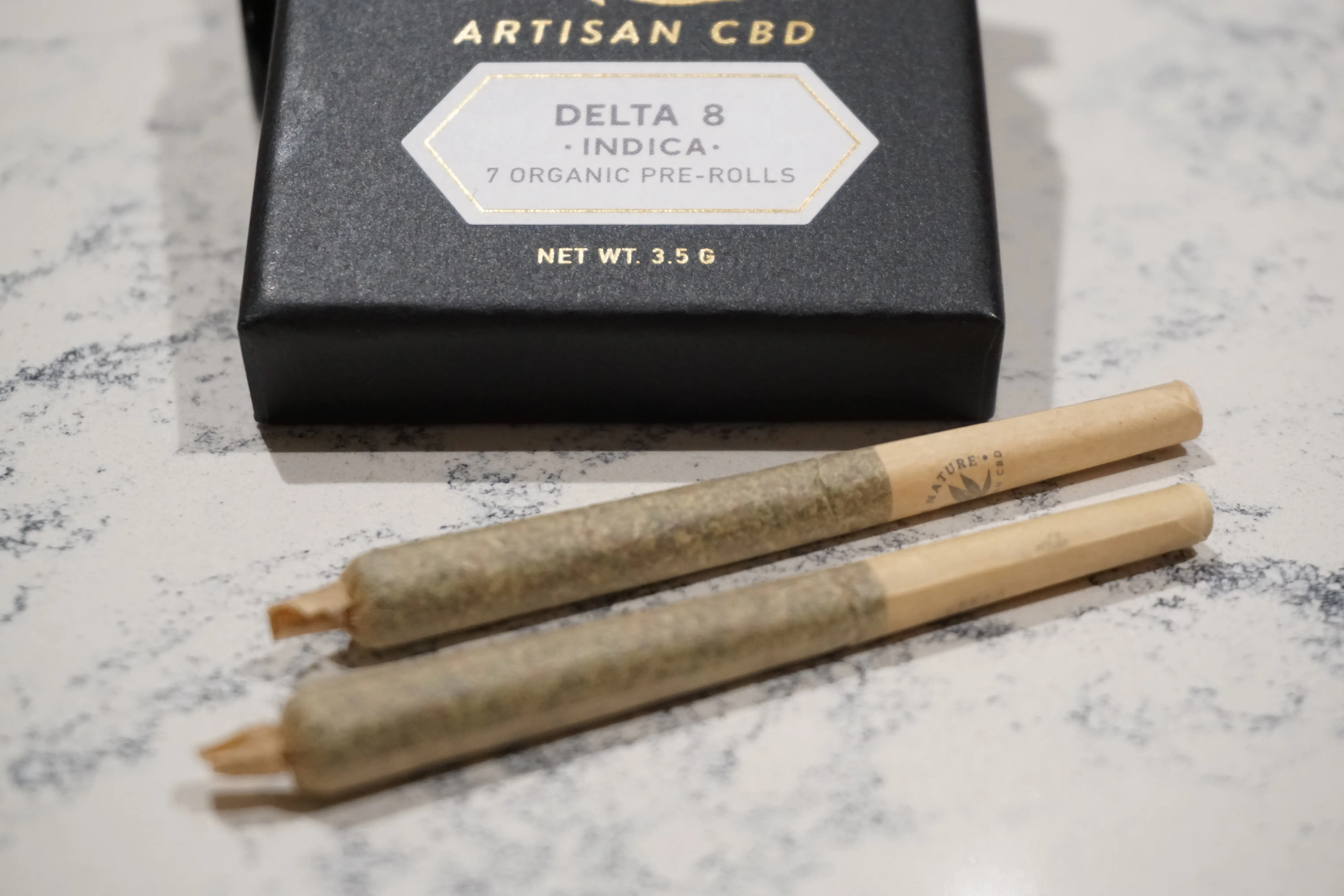

THE ADVENT OF DELTA-8 HAS ALLOWED THE HEMP INDUSTRY TO CREATE PRODUCTS SIMILAR TO THEIR LEGAL CANNABIS COUNTERPARTS.
AT A CANNABIS PROTEST called Hash Bash, Dr. Jessica Kruger, a clinical assistant professor at the University at Buffalo, and Dr. Daniel Kruger, a research investigator at the University at Michigan, set out to prove one thing: the munchies. This moment was a stepping stone towards innovative public health research, and after hearing prohibitionist messaging at various conferences, they were inspired to look into cannabis further.
As weed has become mainstream, so too has the demand for niche products, especially in the hemp/CBD marketplace. Delta-8-THC, a slightly less potent version of Delta-9-THC, is a recent focal point in the industry as the regulations around it are still being determined and the public comment period has come to an end.
Scientific literature on Delta-8-THC (or “delta-8” for short) is limited, with the most recent studies coming out of the 1970s. CBD retailer Bison Botanics recently partnered with the above researchers to survey hundreds of adults on their experiences with delta-8 products. “These worlds had instant synergy because we were interested in this research topic, and these guys [Bison Botanics] are the industry side,” Dr. Daniel Kruger said.
New data shows that nearly half of all respondents reported using delta-8 products medicinally. In addition, many individuals reported that delta-8 had fewer side effects such as anxiety and paranoia.
“Participants saw delta-8 and delta-9-THC as equally effective in producing experiences of pain relief and relaxation, which are the key experiences, if you’re thinking about medical use,” said Kruger. “We’re investigating these issues that are important not just for one particular company, but for society in general.”
Through the lens of retail and customer preference, Bison Botanics founder Justin Schultz says that a portion of people prefer delta-8 over traditional cannabis due to the lower potency. “A lot of people that are not 100% on using cannabis therapeutically might find delta-8 an easier step to take, because there are those lessened side effects…I think it’s going to end up being a regulated product found on dispensary shelves,” he said. If delta-8 does end up on dispensary shelves, this could mean a world of difference to the people currently buying these products online or at hemp retailers like Bison Botanics.
For most consumers, making an informed decision on which product is best for them can be quite the challenge. In a July 23rd interview, assemblywoman Donna Lupardo touched on this: “I don’t think we’ve even scratched the surface for the majority of consumers because many of them really don’t know what they [CBD/hemp products] are…I think many of them need information on what these varietals are about.”
The New York State Department of Health is poised to ban delta-8 and has only proposed cannabinoid/hemp regulations. “Especially from a public health standpoint, what are they [consumers] going to do next if this product isn’t available?” Dr. Jessica Kruger said. “They’re using it for health purposes — could they turn to something else that could possibly be harmful to them?”
Without the guidance of the Office of Cannabis Management, regulating the product remains difficult. Public-private partnerships like this will be the driving force in researching cannabis effectively, and, hopefully, will guide the policy-making process with science.
Related: Indica vs. Sativa Doesn’t Mean What You Think it Does

